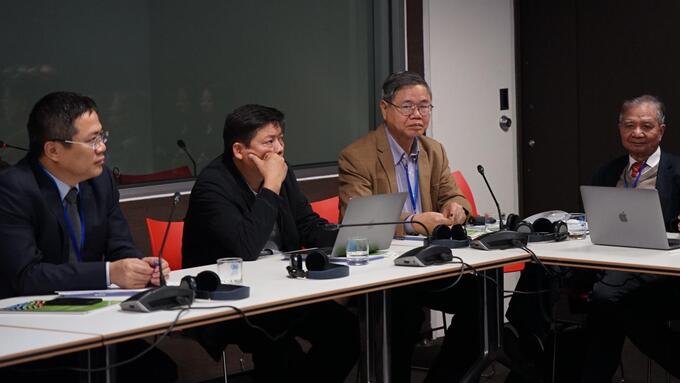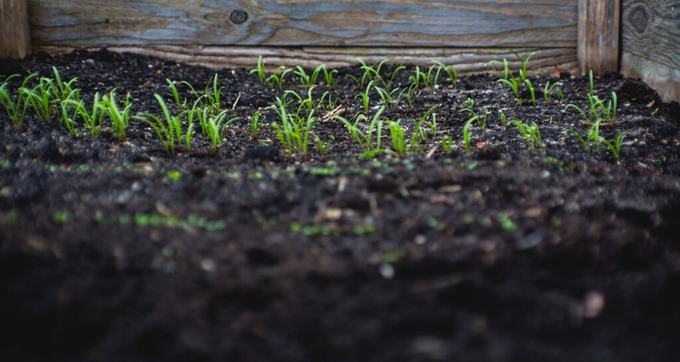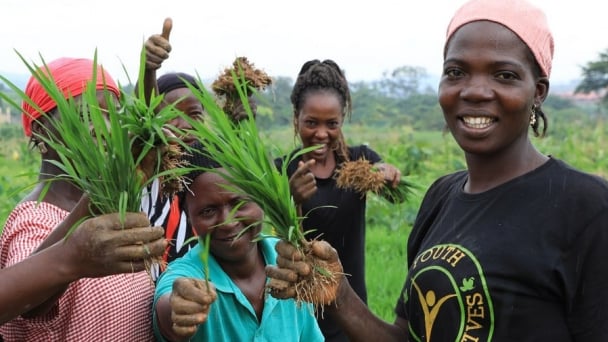May 16, 2025 | 05:35 GMT +7
May 16, 2025 | 05:35 GMT +7
Hotline: 0913.378.918
May 16, 2025 | 05:35 GMT +7
Hotline: 0913.378.918
At the recent kick-off meeting "Support for the development of the national soil health strategy and action plan", Nguyen Van Bo, representative of the Vietnam Soil Science Association (VSSA), mentioned the current situation of soil health in Vietnam. Accordingly, three factors make the problem of soil health seem to be "ignored" and have not received enough attention considering the value it possesses.
In Mr. Bo’s viewpoint, firstly, society is still taking the matter of land lightly, thinking of it as an available resource for exploitation. Meanwhile, the concepts of land degradation and desertification have not been recognized widely by the community since they are recently introduced. Second, there is still no system to monitor land use and land management, while information from the Food and Agriculture Organization of the United Nations (FAO) shows that 95% of food sources are generated either directly or indirectly from agricultural land. And thirdly, there is still no policy system related to sustainable land use.

Nguyen Van Bo, representative of the Vietnam Soil Science Association (third from left). Photo: Linh Linh.
Assessing the general situation of soil health in Vietnam, Vu Manh Quyet, representative of the Soils and Fertilizers Research Institute (SFRI), cited data from studies showing that agricultural land in Vietnam holds limitations.
Vietnam’s total area of agricultural land is just over 11.5 million ha (equivalent to 0.11 ha/person) serving cultivation for nearly 17 million households, which is among the lowest in the world. Agricultural land is mainly concentrated in sloping areas - a relatively large “barrier” to soil quality and fertility, leading to extreme erosion. In many areas, the amount of soil loss due to erosion per year is up to 100-300 tons/ha, while it takes hundreds to thousands of years to form such a layer of nutrients.
“According to statistics from the Ministry of Natural Resources and Environment, 4% of Vietnam's land area is strongly degraded, 7% shows signs of degradation and 20.4% is at risk of degradation. The main causes are the effects of desertification, drought, salinization in the Mekong Delta, inappropriate land use, and no measures to protect soil and water resources in strongly eroded areas. With the problems at hand, developing a strategy and action plan to enhance land management and improve soil health is thus deemed essential,” said the SFRI representative.
Nguyen Thi Bich Ngoc, Deputy Director of the Plant Protection Research Institute (PPRI), cited a recent survey of the unit showing that pest infestation in soil occurs at a frequent rate. Lacking effective measure to control and alleviate the situation, farmers usually come to the conclusion of increasing the amount of pesticides used which lead to an accumulation of pesticide residues in soil. “At least over 50% of farmers spray 8-10 times per crop,” she said.

To ensure soil health, the management of land resources needs to be integrated.
Vietnam has issued many policies related to land such as the Land Law 2013, the Law on Cultivation 2018, the Law on Environmental Protection 2020, and Government Resolution No. 18-NQ/TW on land use management, but there seems to be a lack of policies and documents directly related to soil health. "We need to further raise awareness of the entire community on land issues," said Mr. Quyet.
Pierre Ferrand, Agricultural Officer, Technical Consultant, FAO Regional Office for Asia and the Pacific, said that a new soil health management system would contribute to improving the competitiveness of Vietnamese agro-products in the global market. The approach "soil health - plant health - human health" is the appropriate and comprehensive direction for the cycle of nutrient, food quality and safety in the link between ecosystem and human health.
“Soil health is an important part of the overall picture of Vietnam's strategy for sustainable agricultural development and agricultural system transformation. It needs to go hand in hand with other factors such as cultivation, plant protection, agricultural extension, and farmer training," said Mr. Ferrand.
Agricultural land in Vietnam is said to be poor in nutrients, with few organic components. In some areas, flooding affects soil quality, and there is a phenomenon of soil being "poisoned" and becoming saline and alkaline soil.
In areas where the slope is high and the arable soil layer is thin, the mechanical components are light, and the nutrient factors in the soil are low, hindering the growth of plants. Up to 60% of land in Vietnam lacks potassium, and 70% lacks phosphorus. Soil health is also affected by environmental factors such as increased land use coefficient, intensive farming or uncontrolled use of fertilizers and pesticides.
Translated by Samuel Pham

(VAN) Data from 10,000 farming households will help professionalize production organization and support the implementation of the One Million Hectares Program for High-Quality, Low-Emission Rice Cultivation.

(VAN) FAO Director-General QU Dongyu marks International Day of Plant Health at NENA conference.

(VAN) Deputy Minister of Agriculture and Environment Hoang Trung affirmed that floriculture and ornamental plants are a growing industry that receives significant global attention.

(VAN) The three staple crops dominating modern diets – corn, rice and wheat – are familiar to Americans. However, fourth place is held by a dark horse: cassava.
/2025/05/10/4037-3-223011_495.jpg)
(VAN) Remote sensing technology is becoming an indispensable tool in monitoring resources, developing modern agriculture, and protecting the environment in Vietnam.

(VAN) The trash bag used on fishing vessels can withstand rough sea conditions, including level 8 to level 10 winds and waves. Notably, it can be hung anywhere on the boat.

(VAN) African leaders launched the Kampala Declaration on Building Resilient and Sustainable Agrifood Systems in Africa, marking a bold step toward transforming the continent's agriculture.